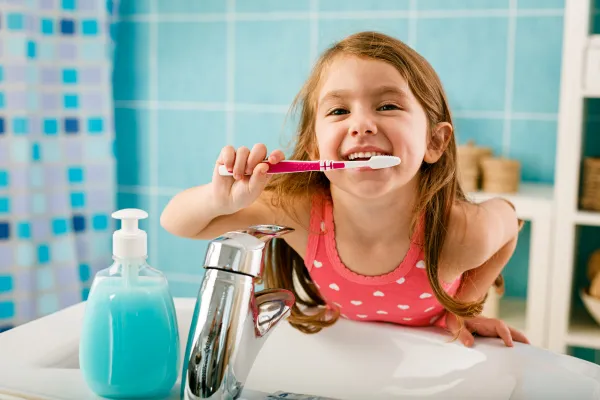
Emotional Development and Dental Health in Childhood: How They Are Connected
The connection between a child's emotional development and their physical health is well-documented, but the impact of emotions on dental health is often overlooked. A child's emotional state can significantly influence their oral hygiene habits and, in turn, their susceptibility to dental problems. This article explores the relationship between emotional development and dental health in children, highlighting how emotions can affect oral care and offering strategies to ensure that children maintain healthy teeth as they grow.
The Link Between Emotional Development and Dental Health
Children's emotions play a crucial role in shaping their behaviors and habits, including those related to dental hygiene. Here are some ways in which emotional development can impact dental health:
Stress and Anxiety: Children experiencing stress or anxiety may neglect their oral hygiene routines. Emotional distress can lead to a lack of motivation or energy to brush and floss regularly, increasing the risk of cavities and gum disease.
Behavioral Changes: Emotional struggles, such as sadness or frustration, can manifest as changes in behavior. For some children, this might mean avoiding or rushing through their oral care routines, while for others, it could result in habits like nail-biting or teeth grinding (bruxism), which can damage teeth.

Comfort Eating: Emotional discomfort may lead some children to seek comfort in sugary or unhealthy foods. Frequent consumption of these foods can contribute to tooth decay and other dental issues.
Self-Esteem and Oral Care: A child's self-esteem can influence how they perceive the importance of their appearance, including their smile. Children with higher self-esteem are often more diligent about maintaining good oral hygiene because they value their appearance and want to take care of it.

How Emotions Influence Oral Hygiene Habits
Understanding the connection between emotions and dental health is key to helping children develop and maintain good oral hygiene habits. Here’s how emotions can impact these habits:
Routine Adherence: When children are emotionally balanced, they are more likely to adhere to daily routines, including brushing and flossing. Emotional turmoil, however, can disrupt these routines and lead to inconsistent oral care.
Parental Influence: A child’s emotional development is closely linked to their relationship with their parents. When parents are attentive to their children's emotional needs, they are more likely to foster a supportive environment that encourages regular oral care.

Communication: Children who feel comfortable expressing their emotions are more likely to communicate any discomfort or fear related to dental care. This open communication can help parents address issues promptly, preventing the development of dental problems.
Strategies to Support Both Emotional and Dental Health
To support your child’s emotional development and dental health, consider the following strategies:
Create a Positive Oral Hygiene Routine: Make brushing and flossing a positive experience by incorporating fun elements, such as choosing a favorite toothbrush or playing a two-minute song during brushing time. This can help children associate oral care with positive emotions.

Be Attentive to Emotional Needs: Pay attention to your child’s emotional well-being. Encourage them to talk about their feelings and provide reassurance during stressful times. Emotional support can help them maintain healthy routines, including oral care.
Encourage Healthy Coping Mechanisms: Teach your child healthy ways to cope with emotions, such as deep breathing, drawing, or physical activity, instead of turning to comfort eating. This can reduce the likelihood of using food as a way to manage emotions, protecting their dental health.
Model Positive Behavior: Children learn by watching their parents. Model good oral hygiene habits and positive emotional coping strategies. Show them how you manage stress and maintain a regular routine, including dental care.
Schedule Regular Dental Visits: Regular dental checkups are essential for monitoring your child’s oral health and can also be an opportunity to discuss any emotional issues that might be affecting their dental habits with the dentist.

The connection between emotional development and dental health in children is a vital one. By understanding how emotions influence oral hygiene habits, parents can better support their children in maintaining both their emotional well-being and their dental health. Creating a positive environment that fosters both emotional growth and good oral care habits is key to ensuring that children develop healthy teeth and a healthy mindset that will serve them well throughout their lives.





